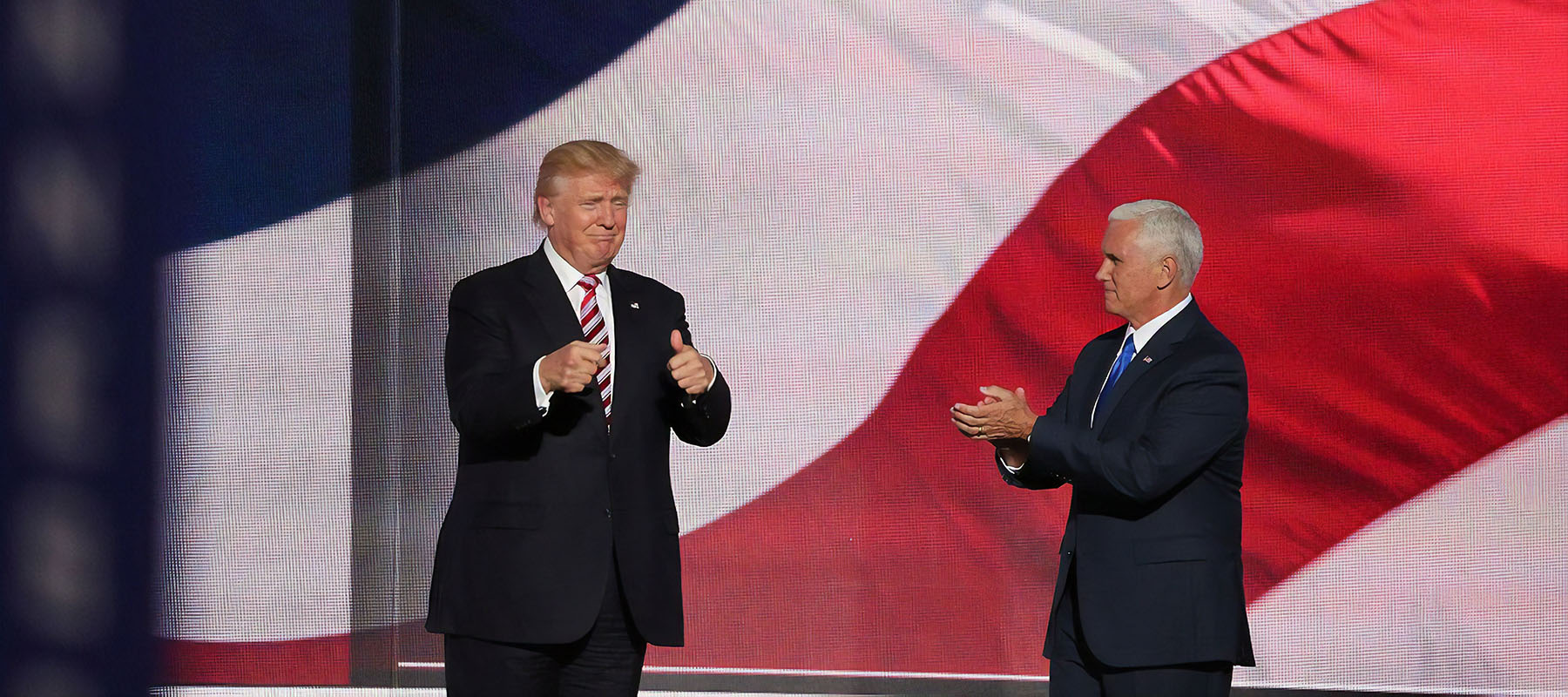
As the United States of America moves forward under a new administration headed by President Joe Biden, Donald J Trump's legacy still looms large. So, what can modern history tell us about the Trump era? In their recent article 'The Strategy of Tension', published in Springer's journal Critical Criminology, Criminologists Dr Matt Clement and Dr Vincenzo Scalia draw parallels between Trumpism and 20-century Italian politics and reveal some eerie similarities.
Are there similarities between Trumpism and 20-century Italian politics?
There undeniably are if we think of Trumpism in terms of the so-called Strategy of Tension, which we define as the use of violent criminal actions by state agents to engender a climate of fear that blames the violence on a dangerous 'public enemy'.
During the 2020 Presidential electoral campaign, as he was lagging far behind Biden in the polls, Trump managed to use the widespread conflicts following the death of George Floyd at the hand of a policeman to his advantage by claiming Black Lives Matter (BLM) protests threatened law and order and would bring social and political chaos. His re-election, he claimed, would put a stop to that.
It is not by accident that the incumbent President came back from eight points behind in the pre-election polls and lost by only 3.4 percent. Trump's message was precisely the same as the one used by the Italian right-wing governments of the 1960s and 1970s, hegemonised by the Christian Democrats: street violence, bombs and clashes between left and right would have brought Italy to collapse - what the country needed was a right-wing government.
The elections didn't go as Trump had planned. A self-confessed poor loser, Trump proceeded to foment chaos and resentment, relentlessly spreading the message amongst his supporters that the outcome was invalid and the election had been stolen.
An uncertain election outcome is a potent force: it can bring about an embitterment of the political atmosphere, making room for widespread instability and violent upheavals.
Another factor is that Trump's right-wing message of 'Make America Great Again' was always coupled with a warning about the US turning 'socialist' and the dangers caused by social protest movements, against whom Trump would mobilise the forces of law and order. This parallels the situation in Italy. There, the far-right fascist sympathisers who caused the violence, such as the bombings in Milan in 1969, the coup attempt in 1970 and the Bologna station bombings of 1980, had many allies in the state security apparatus.
This also appears to be the case with America's Capitol Riot on 6 January 2021. As well as Trump as chief inciter, observers have pointed to the large number of military and off-duty police joining the protest, as well as the velvet glove policing by the Washington DC force itself. These stand in stark contrast to the harsh measures employed against BLM protestors.
In Italy, the true scale of the state-led conspiracy to manufacture tension by backing the far right against the left long remained a secret. It wasn't until 1990 when it was revealed how senior members of the government and security services had orchestrated the violence, while NATO members like the US and UK had trained and funded many of the 'secret soldiers' who carried it out.
Indeed Britain had its own equivalent to the right-wing Capitol 'insurrection' when Loyalists in Northern Ireland successfully went on strike on 1974 to bring down the then Labour Government's proposed power sharing agreement that sought to end the terrorist conflict in the province. There too, the British military were complicit in the action and succeeded in delaying a negotiated settlement for a further 20 years.
As is well known, the US has been fixated on Homeland security ever since the 9/11 attacks, dedicating massive resources and manpower to preventing radicalisation and accompanying violence. So how could the FBI fail to act against such a publicly organised movement which climaxed on 6 January? Only if some of its own people were sabotaging attempts to prevent it.
Trump may have lost the election, but Trumpism survives. His gun-toting hard-core support will be emboldened by the fact that more people voted for Trump in 2020 than in 2016, whilst angry that he has been robbed of his victory, which could prove a dangerous cocktail for the future of America. We should not forget that the period of violent conflict that followed the bombings in Italy was known as the 'Years of Lead'. With America's gun ownership rates, the prospect of a repeat is a harrowing one.
In October 2020, Dr Clement and Dr Scalia were interviewed about their influential paper 'The Strategy of Tension' for the article Is the US Already in a Civil War? on the Vice website.
Press Office | +44 (0)1962 827678 | press@winchester.ac.uk | www.twitter.com/_UoWNews
Back to media centre